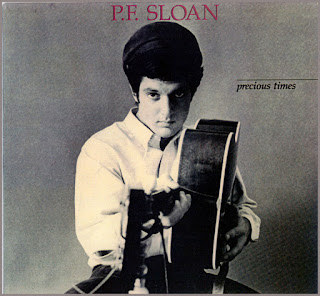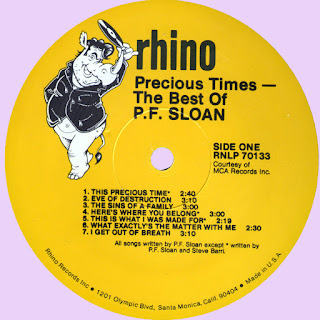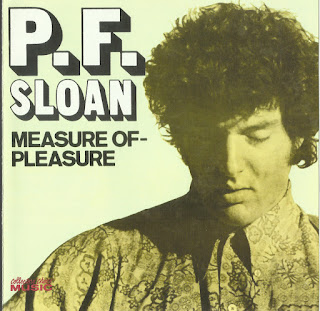As far as homegrown prog bands went (with a couple exceptions), 1970's America was the home of the brave but doomed. Leviathan was one act that actually managed to get one proper album release before disappearing, probably to secure to themselves and their posterity the blessings of not starving to death. Not as derivative of big-name British acts as most of their contemporaries, Leviathan's release (LP Mach Records AMA 12501) instead demonstrates how much more blurred the line between heavy metal and progressive rock had already become in the Colonies than in the Old Blighty.
The opening track "Arabesque" is rife with crunchy guitar riffs, stomping drums and bass, and bluesy vocal melodies delivered with hard rock's throaty harshness and occasional caught-meself-in-the-zipper yells. On the other hand, these are interspersed with a more delicate and harmonically complex sections with acoustic guitar, quick organ cadenzas and especially swirling Mellotron swells. The effect resembles some of Kansas' early works, though the writing is less adventurous and the playing less dynamic. The rest of the album pendulates between these two elements, searching for a right balance with variable success.
On "Seagull" the effect created by the mellifluous middle section full of liquid piano and Mellotron strings and woodwinds in what is otherwise just a slow-grinding, chugalong rock tune is a bit too cut and paste to avoid sounding contrived. Others mix ingredients with greater skill, either giving a straight-forward song a rich prog-style coating and melodic shine ("Always Need You") or using heavy guitar and rhythm section for impressive dynamic swells on an otherwise brooding, classical composition ("Endless Dream"). "Angel of Death" pretty much ditches the prog element, and sounds much smoother - and duller - as a result. The other extreme is the gentle, non-metallic ballad "Angela", which is saved from MOR mundanity by a small but nice harmonic modulation and a frothy use of acoustic guitar and lapping Mellotron strings. It all finally comes together on the closer "Quicksilver Clay", a quite stylish amalgamation of progressive melodic and instrumental richness, and the vigour of an underlying metal base.
It's too bad things don't click more often, because it results in an unbalanced, lopsided album. Admittedly, I am not a fan of the metal style, but when it works, the synthesis of old-style heavy guitar and Mellotron as displayed here is quite novel and charming - certainly enough to make this album worthwhile. Those into heavy prog in the old sense of the word, without thrash riffs, neo-classical shredding or double bass drum havoc, should definitely investigate this one.
by Kai Karmanheimo
Tracks
1. Arabesque - 6:15
2. Angela - 6:40
3. Endless Dream - 9:58
4. Seagull - 5:00
5. Angel of Death - 4:07
6. Always Need You - 3:22
7. Quicksilver Clay - 7:28
8. Why I Must Be Like You - 3:00
9. I'll Get Lost Out There - 3:42
All compositions by Leviathan
Leviathan
*Wain Bradley - Bass, Guitars, Vocals
*Peter Richardson - Organ, Vocals
*Don Swearingen - Piano
*Grady Trimble - Guitars
*John Sadler - Mellotron
*Shof Beavers - Drums
Free Text
Free Text II


















































